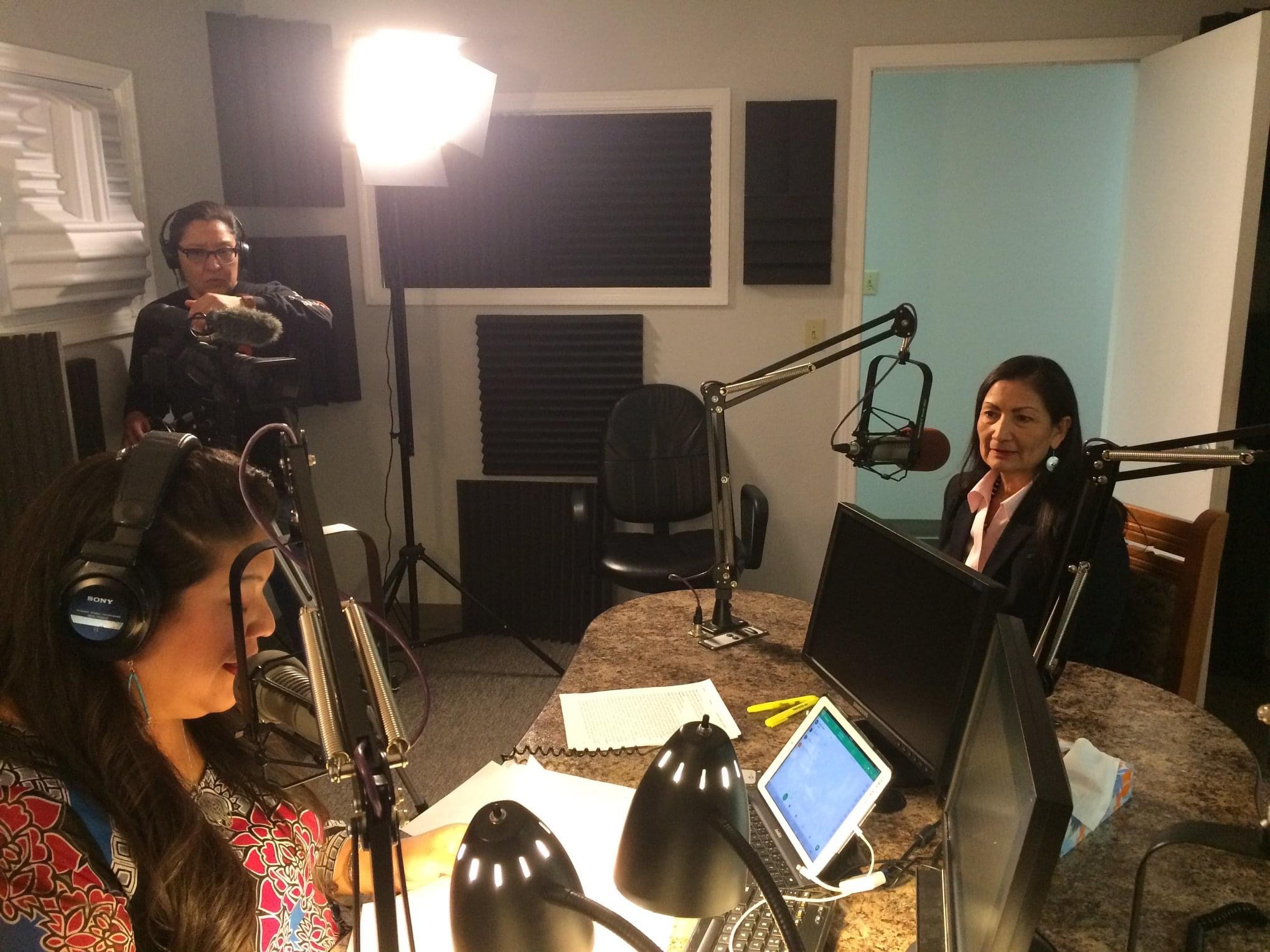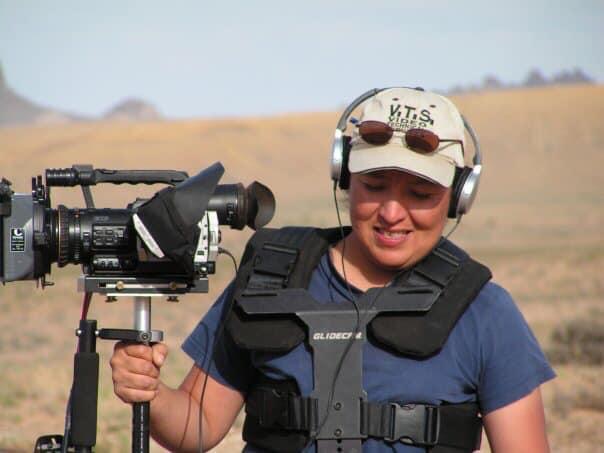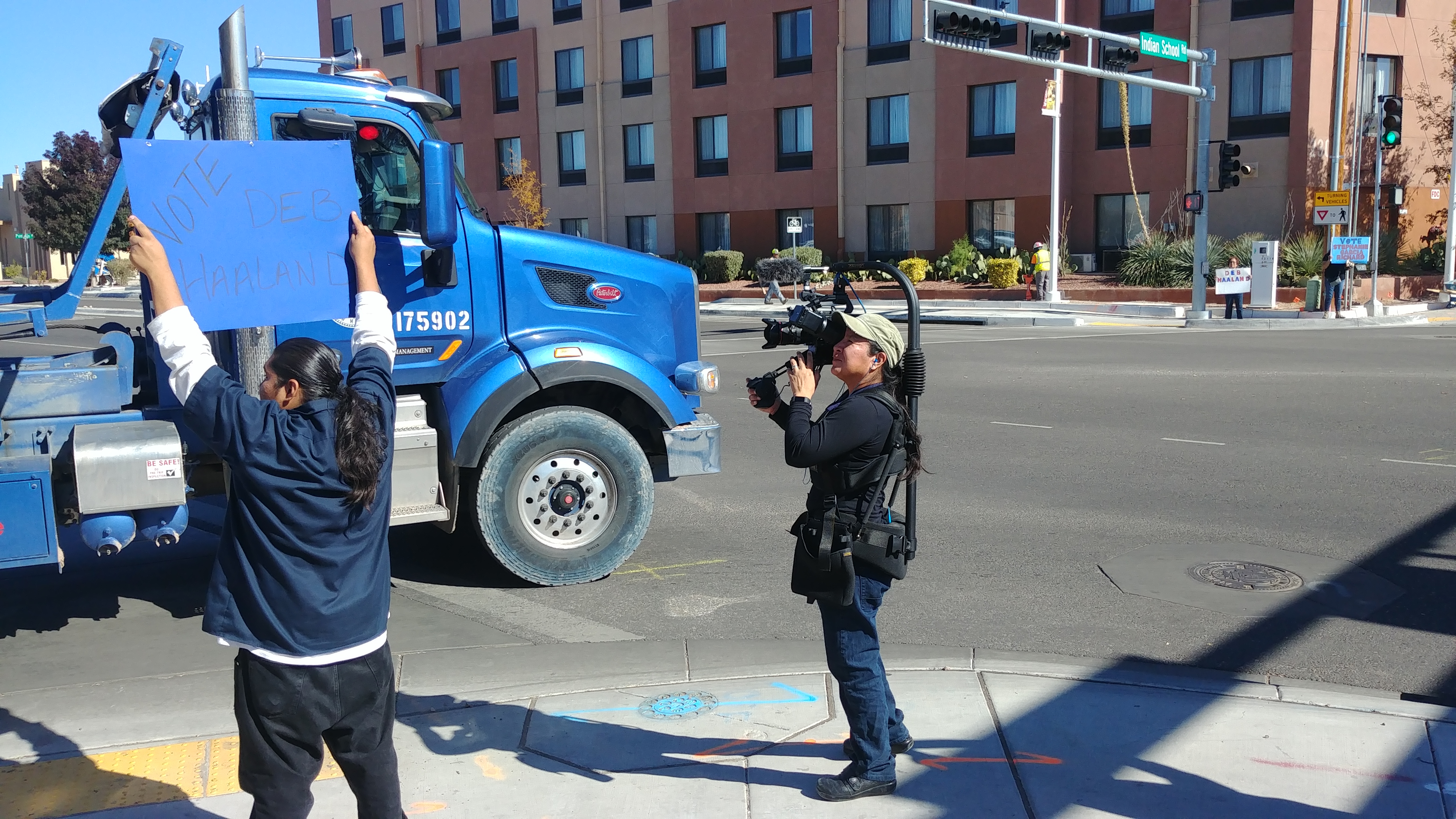ALBUQUERQUE, N.M. (KRQE) – Ramona Emerson has been telling stories her whole life. As a Navajo woman, she says telling stories is in her blood and heritage. She’s been making films for over 20 years, telling the stories of her community, and now helping train the next generation of Indigenous storytellers.
She grew up in Tohatchi on the Navajo Nation, near the border of the Arizona state line. Emerson chose to attend the University of New Mexico for a multitude of reasons, the most important being getting to stay close to family, and having the chance to attend the same college her grandmother and mother graduated from.
Emerson’s preferred major didn’t exist when she started school. It wasn’t until later that the film program was created, and she was part of the very first cohort to participate. “I’ve always loved film, I’ve always been a film buff. It’s something I share with my family. My grandma, my mom, we all loved movies and it was such a big part of our lives that I just memorized movie lines and I went to see movies a million times. It was just one of those kinds of things in my life,” Emerson said.



Growing up, she never thought she could accomplish being a filmmaker because it was because of the lack of funds and experience and because it was mostly male-dominated at the time. “As a little girl, a little Navajo girl on the rez, or hanging out with my mom and seeing her do her art, I just knew there was no way that I could be a filmmaker,” Emerson said. “There were no female directors, there wasn’t anything like that going on at the time. I thought it was so far out of reach.”
As a sophomore, she made a film for one of the retiring staff members at her high school, and ever since then, she said she was completely obsessed with filmmaking. Emerson read any book she could get her hands on regarding film. Her grandmother bought her a video camera when she graduated from UNM.
Emerson would record conversations with her grandmother, something that set her down the path to becoming a documentary filmmaker. “Now that she’s gone, I can go back and listen to what she said. That made me realize the importance of film and documenting. It archives the history, it archives stories that I might not remember without the videos or photos,” Emerson said.


Emerson has since gone on to work on numerous projects as a cinematographer, writer and editor through her and her husband’s production company, Reel Indian Pictures. She received an MFA in creative writing in 2015 from the Institute of American Indian Arts. She is a Sundance Native Lab Fellow, a Time-Warner Storyteller Fellow, a Tribeca All-Access Grantee and a WGBH Producer Fellow.
Now, she’s taking those skills and experiences and helping the next generation of Indigenous filmmakers learn how to tell their own stories. “I always talk about how you should tell stories about the place that you come from, and the problematic issues behind outsiders coming in to tell stories in our communities and I wanted to walk the walk,” Emerson said.
She’s currently working with Vision Maker from PBS to do a workshop that will teach methods of obtaining funding for their projects. “I want them to know that getting funding from PBS and telling those stories is absolutely within their reach,” Emerson said. “That’s the way to change the narrative, you give them the money, you give them the tools to tell these stories and then you step back and let it happen.”